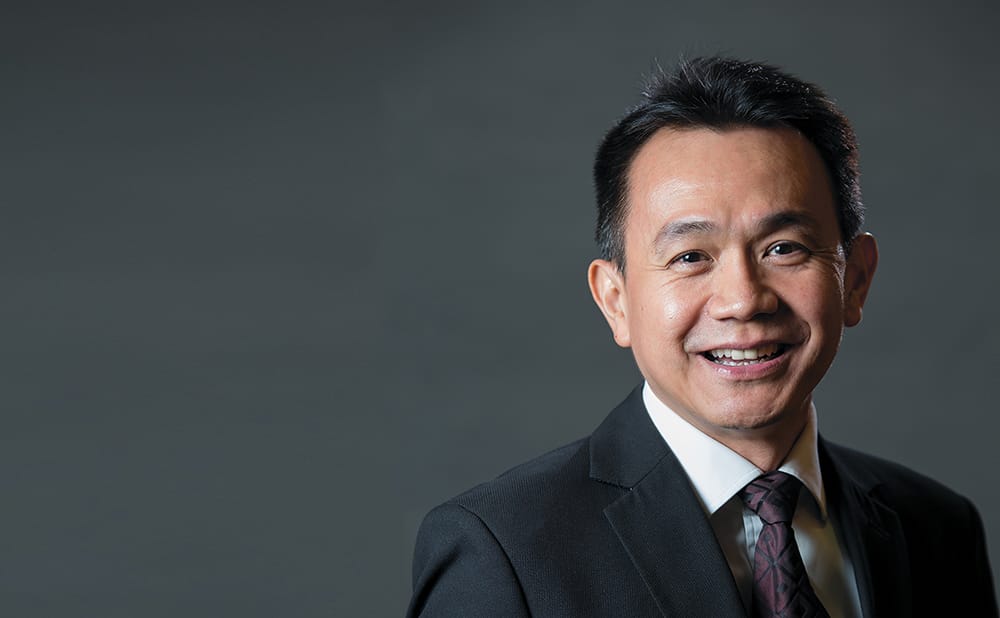
After graduating in economics from Monash University Malaysia in 1990, Pun Tian Pouw (known simply as TP) opted first for a predictable career choice in accounting. He soon made a less conventional move to what was then an emerging field in hot demand: computer programming. But it wasn’t until a few years later, when he made a fundamental shift from working with data to working with people, that he found his real career niche in human resources.
“There was no turning back from there on,” TP recalls with obvious warmth. “I just loved HR. I loved dealing with people issues and creating impact around people.”
That passion for people – and making a positive difference for them – is a defining feature of the man in his subsequent successful HR career and personal life.
His leadership and consulting record includes senior roles with one of Malaysia’s largest conglomerates, Hong Leong, and in projects across India, Southeast Asia and Australia.
A decade ago, he was headhunted by Korn Ferry to become a head-hunter himself, rising to become a principal until early 2018, when he stepped back into a consultant role and early semi-retirement to spend more time with his loved ones and care for his ageing parents in Kuala Lumpur. He’s still involved in causes close to his heart, including mental health, promoting talent, workplace diversity – notably working to bring more women onto Malaysian corporate boards – and mentoring and leadership programs for young professionals, including Monash alumni and final-year students. He’s “most proud” of his Melbourne-based nephews following in his footsteps to Monash in Australia.
In his private life, TP has been an active volunteer for more than a decade with the non-profit NGO Befrienders Worldwide (a counterpart of Australia’s Lifeline counselling service) and is a board member of Befrienders Kuala Lumpur. He uses his spare time providing emotional support to people who are distressed and in despair, and also volunteers as a life skills coach in a community home for children.
TP says his commitment to helping others can be traced back to his parents. “Both of them were quite progressive in that sense. They were always among the first to respond to natural disasters and help out in the community. During a flood, for example, they would open our house for other families to move in.” Another significant life event came during his time at Monash when a good friend attempted to end her own life. Later, another close friend committed suicide. “That was the first time I was exposed to people going through a lot of depression. It left a very strong impression on me.”
He’s pleased to see a shift in emphasis today in business and economics away from a sole focus on growth and GDP, and towards social responsibility and sustainable development goals.
“I just hope we can all learn to love ourselves for who we are, accept our own flaws, care for the Earth and give a helping hand when we can."





